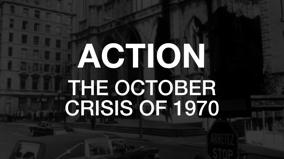New release
Coming
None
A Day in June
1958
25 min
Leaving soon
This short documentary profiles Saint-Jean-Baptiste Day parade in Montreal in 1959. The annual parade takes place every June 24th in memory of Saint-Jean-Baptiste, the patron saint of Québec. Candid shots of youngsters preparing their costumes for the festivities are partnered with a lively jazz soundtrack. All the Montrealers and out-of-town tourists featured in this film avidly participate in a public festivity that is dear to their hearts.

Details
This short documentary profiles Saint-Jean-Baptiste Day parade in Montreal in 1959. The annual parade takes place every June 24th in memory of Saint-Jean-Baptiste, the patron saint of Québec. Candid shots of youngsters preparing their costumes for the festivities are partnered with a lively jazz soundtrack. All the Montrealers and out-of-town tourists featured in this film avidly participate in a public festivity that is dear to their hearts.
-
executive producerLouis Portugais
-
scriptMarcel Martin
-
photographyJean RoyMichel BraultRay JonesClaude JutraRaymond Le BoursierTerence Macartney-FilgateReginald MorrisJohn Spotton
-
soundMichel BelaieffMarcel CarrièreAndré HourlierClaude Pelletier
-
editingVictor JobinJean Dansereau
-
sound editingBernard Bordeleau

















